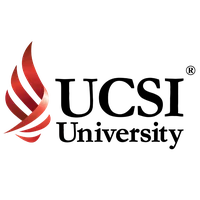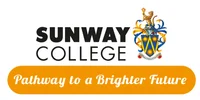Without science, this world would not have existed in the way it does. Great scientists such as Albert Einstein, Isaac Newton, Galileo Galilei, Charles Darwin, Aristotle, Marie Curie, and a lot of other scientists made great inventions that were further developed by today’s scientists.
More inventions are made monthly, if not annually. Who knows what the future will bring us if you are in it to be a great scientist.
What is Applied and Pure Sciences?
Applied and Pure Sciences is a very broad degree. The first two years is a pre-study, so that you can choose your field of specialisation once you get in a university.
You will be introduced to different subjects that will help you make up your future career choice.
The difference between Applied and Pure Sciences is that Applied Sciences focuses on the scientific knowledge of nature, it is more related to engineering and technology. Pure sciences is more related to theories and predictions to understand the world of nature, often performed in a laboratory. Even though there is a difference between these two forms of science, they are still used together because in order to perform one thing, you need the knowledge on how to approach it.
These are a few fields of specialisations if you choose this degree:
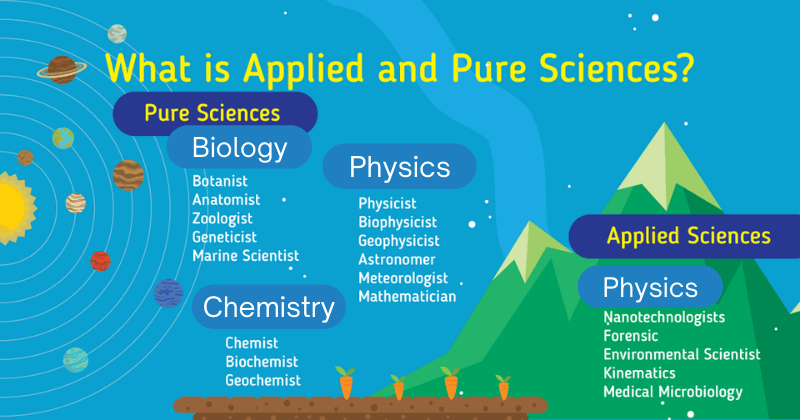
Why should you study this degree?
Science is needed in a world full of developments and technologies. Everyone needs to keep track of the latest inventions, some of which could probably be yours.
With this degree you will be able to save even more lives, disprove inaccurate beliefs, develop some great and useful skills, get an understanding of the world, have the chance to take part in a public debate, and to help out the economy.
(Check this out: Universities that offer Applied Sciences)
What skills will you develop?
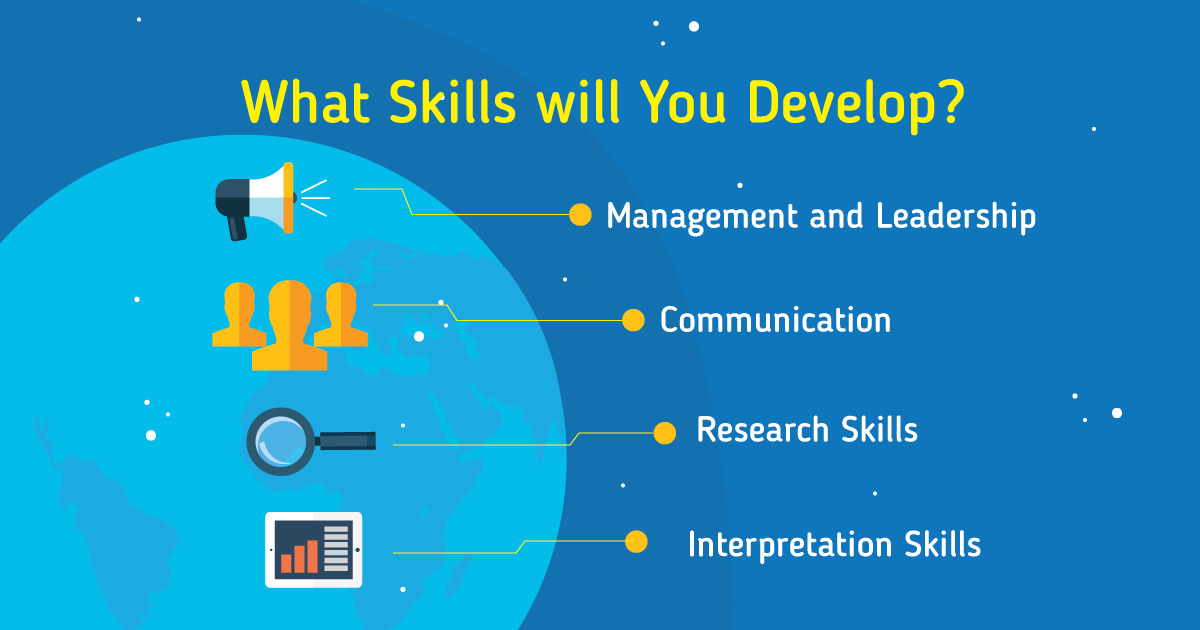
- Management and Leadership
With this particular skill, you will know how to plan and organise science-related projects. It is important that you guide and instruct your team well. As a manager or leader you are the one who needs to inspire and motivate them.
- Communication
Communication skills are valued in all careers. As a scientist you will get to work on your own research. Your work could be demonstrated and that needs to happen in such a way that everyone will understand what you are talking about. Conveying scientific terminology effectively is a major key here.
- Research Skills
Where would a scientist be without their research skills? This skill is needed for you to come up with solutions for certain problems and to effectively analyse data.
- Interpretation Skills
It is required to accurately report your findings, analyses, and measurements. It needs to be detailed, both written and verbal.
What are the Job Opportunities?
With Applied and Pure Sciences, there is a lot of career diversity. Here are a few jobs you could get:
Astronomer
Astronomers are scientists who focus their studies on fields related to scopes outside the Earth. They will give explanations about the universe using high-tech instruments and methods.
They understand and create pure observations so that it can be applied and used by other branches.
Dentist
Dentists treat and prevent problems related to mouth, teeth, and gums. They can also perform teeth whitening, restore missing/broken teeth, give advice on how to maintain the health of teeth, and recruit and train their dental nurses.
As a dentist you can either open your own clinic or choose to work in a hospital.
Chemist
Most of the time, you will find chemists in a lab performing tasks such as testing different formulations, substances and chemicals.
A few responsibilities of chemists include reporting scientific results, validating methods and equipment, interpret data, and analyse different samples.
Pharmacist
Pharmacists are often employed in pharmacies, drugstores, hospitals, and medical clinics. They let patients know about medicine and their side effects.
Pharmacists must have excellent computer and interpersonal skills as well as written and verbal communication skills. They pay close attention to a patient’s current and past medications.
Mathematician
Mathematics involves a lot of analysing and developing new models and data to improve theories. This data can be used to improve corporate decisions and to solve problems within a company.
There are two types of mathematicians; theoretical mathematicians and applied mathematicians. The theoretical ones try to identify unexplained issues by doing research whereas applied mathematicians use these theories and techniques to solve problems.
Geologist
Geologists study the earth and everything that comes with it; rocks, soil, fossils, mountains, etc. They will study how this planet is made, the origin of it, and they will research about all the historical theories of the earth to foresee future events.
As a geologist you could be employed in environmental organisations and companies, natural resource companies, or non-profit organisations.
Physician
Physicians diagnose and treat injuries or illnesses. They monitor patients’ conditions and explain test results or prescribed treatments.
Physicians have long working hours, and this job requires a lot of strength, both physically and mentally. They also counsel patients on totpics related to diet, hygiene, and preventive healthcare.
What is the Expected Salary?
Below you will find the expected salaries of some of the Applied and Pure Sciences related jobs:
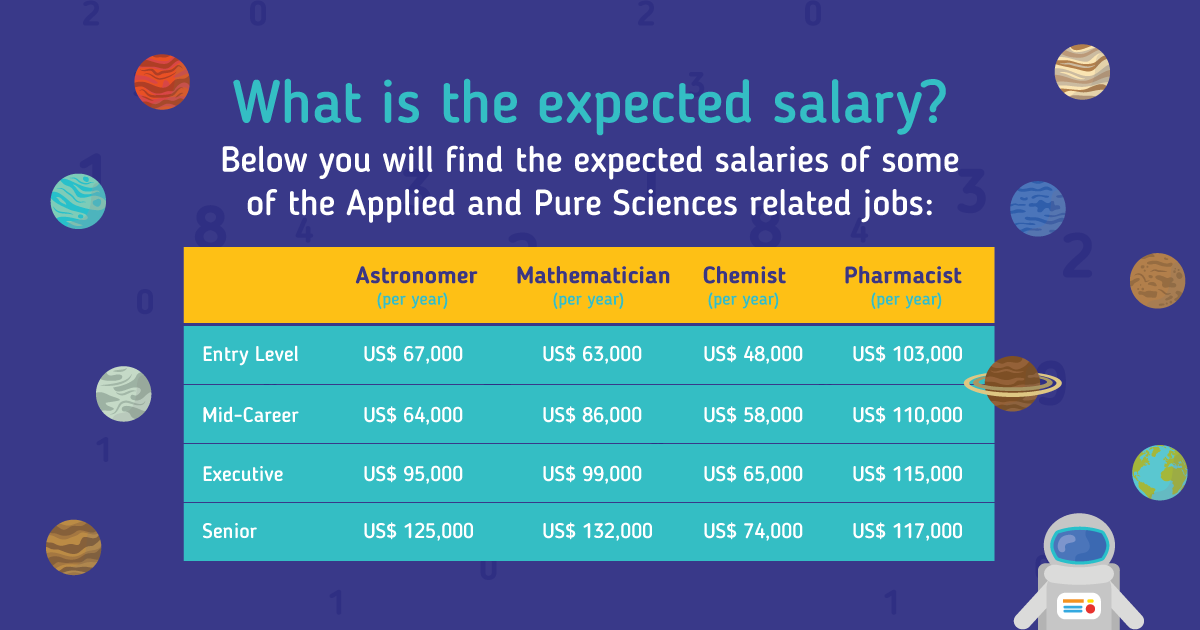
Source: Payscale
Top 10 Applied and Pure Sciences Schools
These are the Top 10 Applied and Pure Sciences schools famous for their Biology, Chemistry and Physics programmes according to the QS World University Rankings 2022:
- Harvard University, US
- Massachusetts Institute of Technology, US
- University of Cambridge, UK
- Stanford University, US
- University of Oxford, UK
- University of California, Berkeley, US
- California Institute of Technology (Caltech), US
- ETH Zurich, Switzerland
- National University of Singapore
- Nanyang Technological University, Singapore









